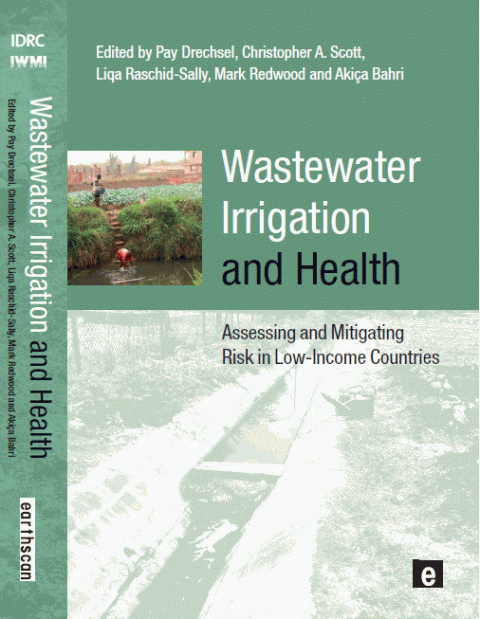Wastewater Irrigation and Health Assessing and Mitigating Risk in Low-Income Countries Drechsel, P. et al. (2010)
Bibliographic information
Drechsel, P. et al. (2010). Wastewater Irrigation and Health Assessing and Mitigating Risk in Low-Income Countries International Water Management Institute (IWMI), Earthscan, International Development Research Centre (IDRC), ISBN 978-1-84407-795-3
Filter / Tags
Recommended by SuSanA (other than SuSanA publications)Food security and productive sanitation (WG5)Greywater or wastewaterRuralEnglish
External links
Download book from IWMI website
Downloads

Published in: 2010
Pages: 433
Publisher:
International Water Management Institute (IWMI), Earthscan, International Development Research Centre (IDRC), ISBN 978-1-84407-795-3
Author(s):
Drechsel, P. et al.
Uploaded by:
IWMI
International Water Management Institute
